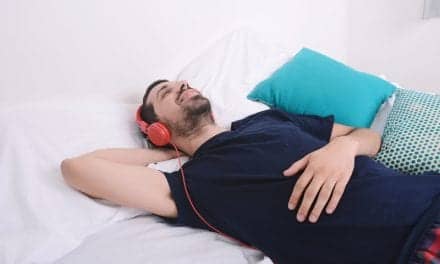Nightingale Smart Solutions Inc, creator of the Nightingale smart sleep system, announced the results of a study conducted by SleepScore Labs showing that Nightingale reduces perceived wake occurrences due to noise by 64% and ultimately enhances perceived sleep quality by 26%. In addition, Nightingale was objectively shown to improve sleep quality using SleepScore by ResMed sophisticated non-contact sleep monitoring technology. The study highlights the efficacy of Nightingale’s advanced sound masking technology and reveals the significant extent to which it improves a user’s sleep.
The study additionally showed that:
- Nightingale increased perceived sleep duration by 16 minutes per night
- 76% of participants reported Nightingale improved their sleep
- 70% of participants were pleased with Nightingale’s sound quality
- 88% of participants planned to continue to use Nightingale after completion of the study
- 80% of participants said they would recommend Nightingale to their close friends and family
Roy Raymann, PhD, vice president, Sleep Science and Scientific Affairs at SleepScore Labs, says in a release, “Noise pollution can have a significant impact on an individual’s sleep, resulting in wake occurrences throughout the night that deteriorate the overall quality of sleep. We tested Nightingale to determine if the device would improve an individual’s sleep quality and found that using Nightingale significantly reduced perceived wake occurrences due to noise, and ultimately supported a better night’s sleep among participants, resulting in an increased SleepScore as measured by the SleepScore Technology.”
Christopher Calisi, CEO of Nightingale Smart Solutions, says, “Our goal is to help people across the country get the best night’s sleep of their life. We’ve created a unique device that brings some of the most advanced sound masking technology available right into your home, so everyone can experience the benefits of a better night’s sleep. With 76% of participants reporting that Nightingale improved their sleep during the study, we are thrilled to see our mission coming to fruition and look forward to continuing to help users sleep soundly every night.”
To determine the results of the study, 25 participants first tracked their sleep for 2-3 weeks without using Nightingale, then for 2-3 weeks with Nightingale. Tracking consisted of both self-reported data and objective analysis using SleepScore by ResMed non-contact sleep monitoring technology.





